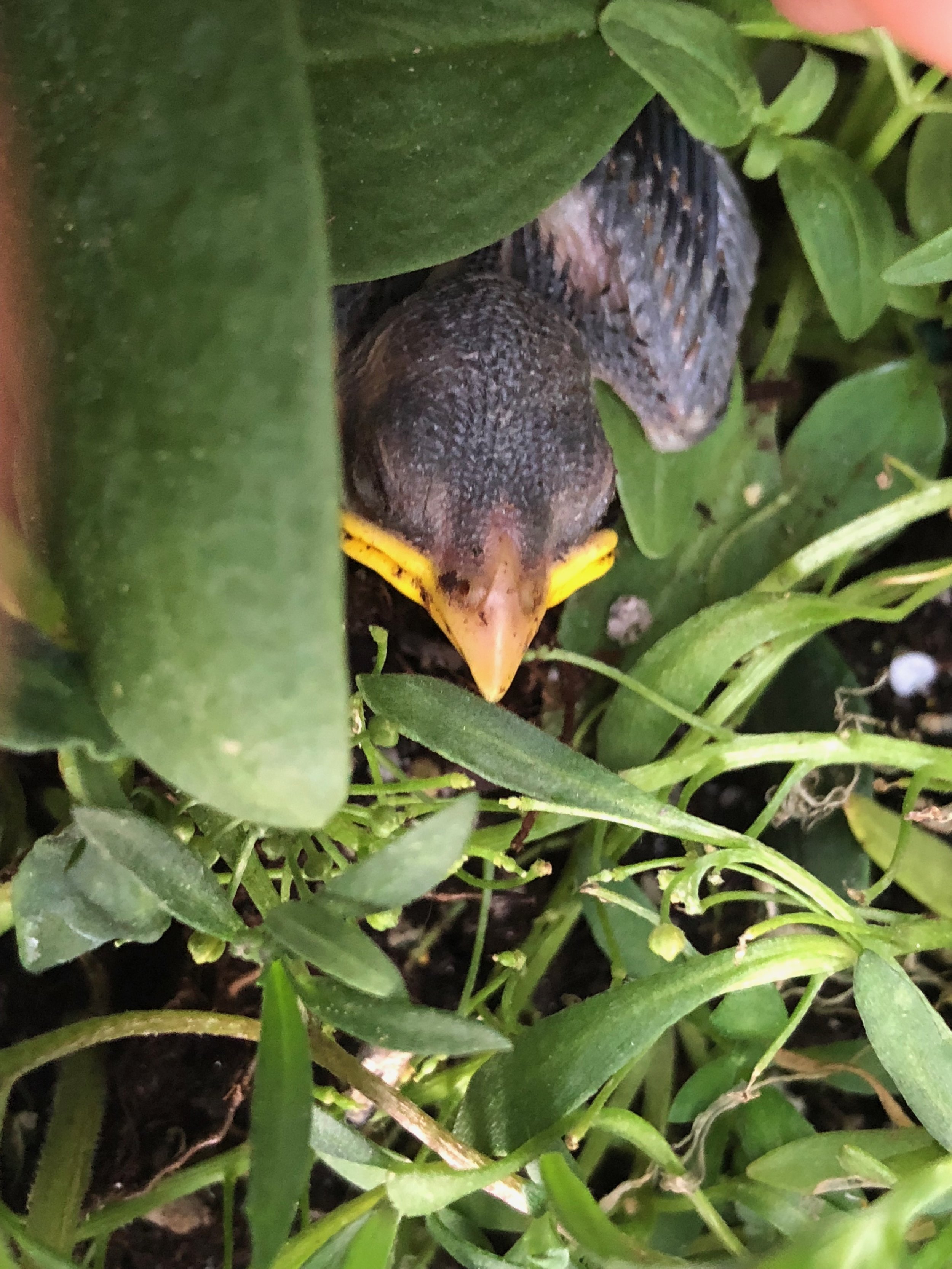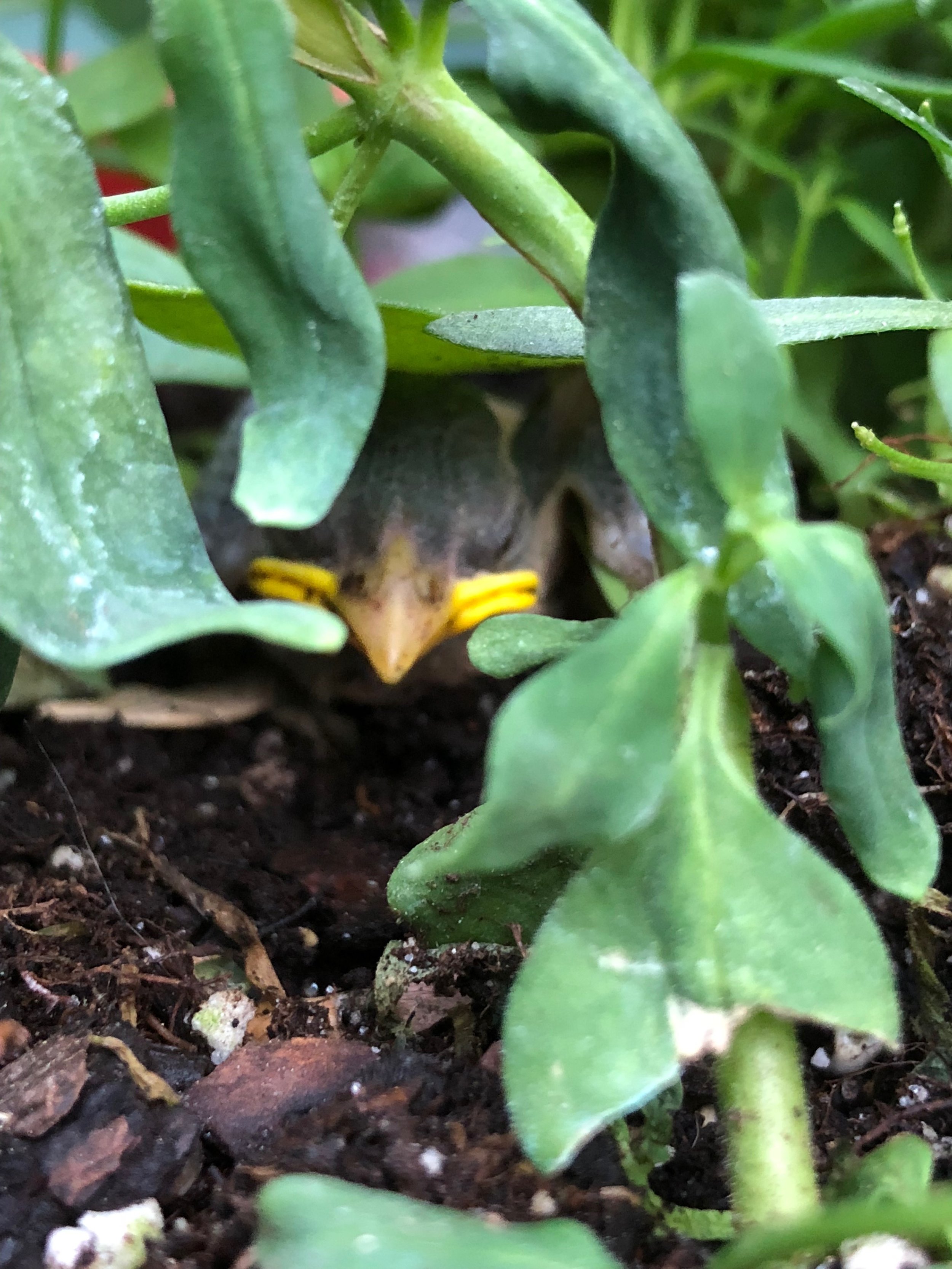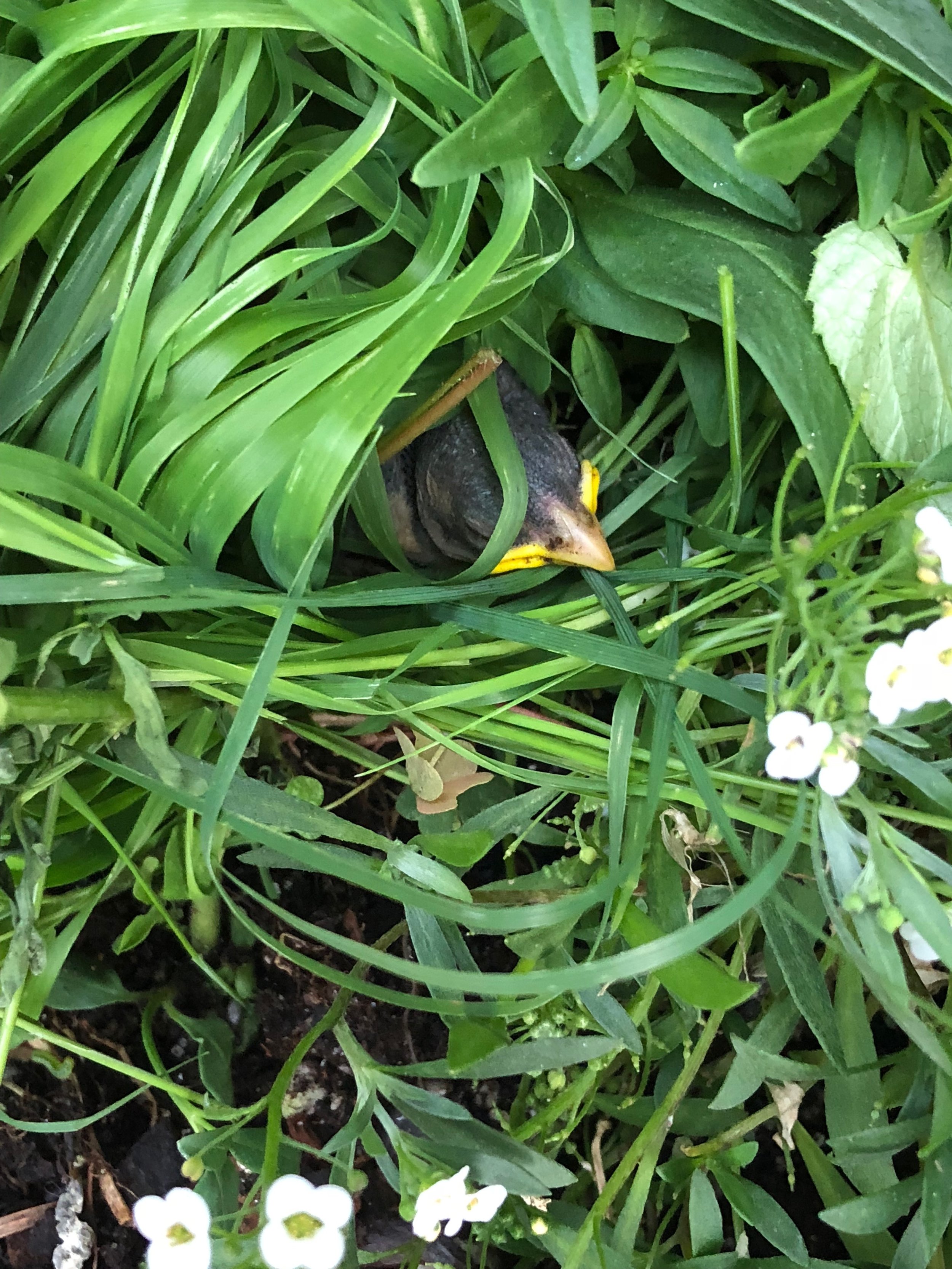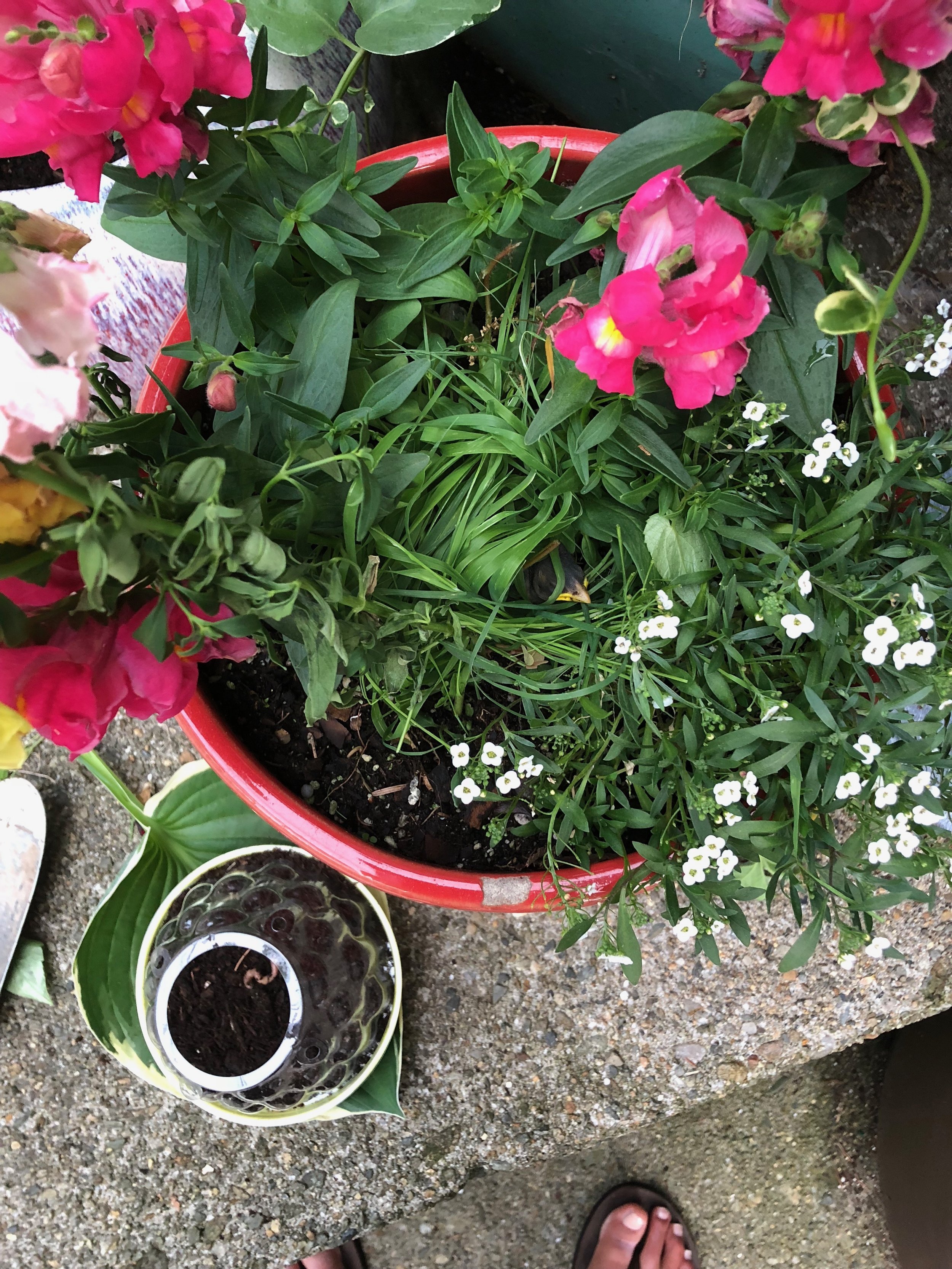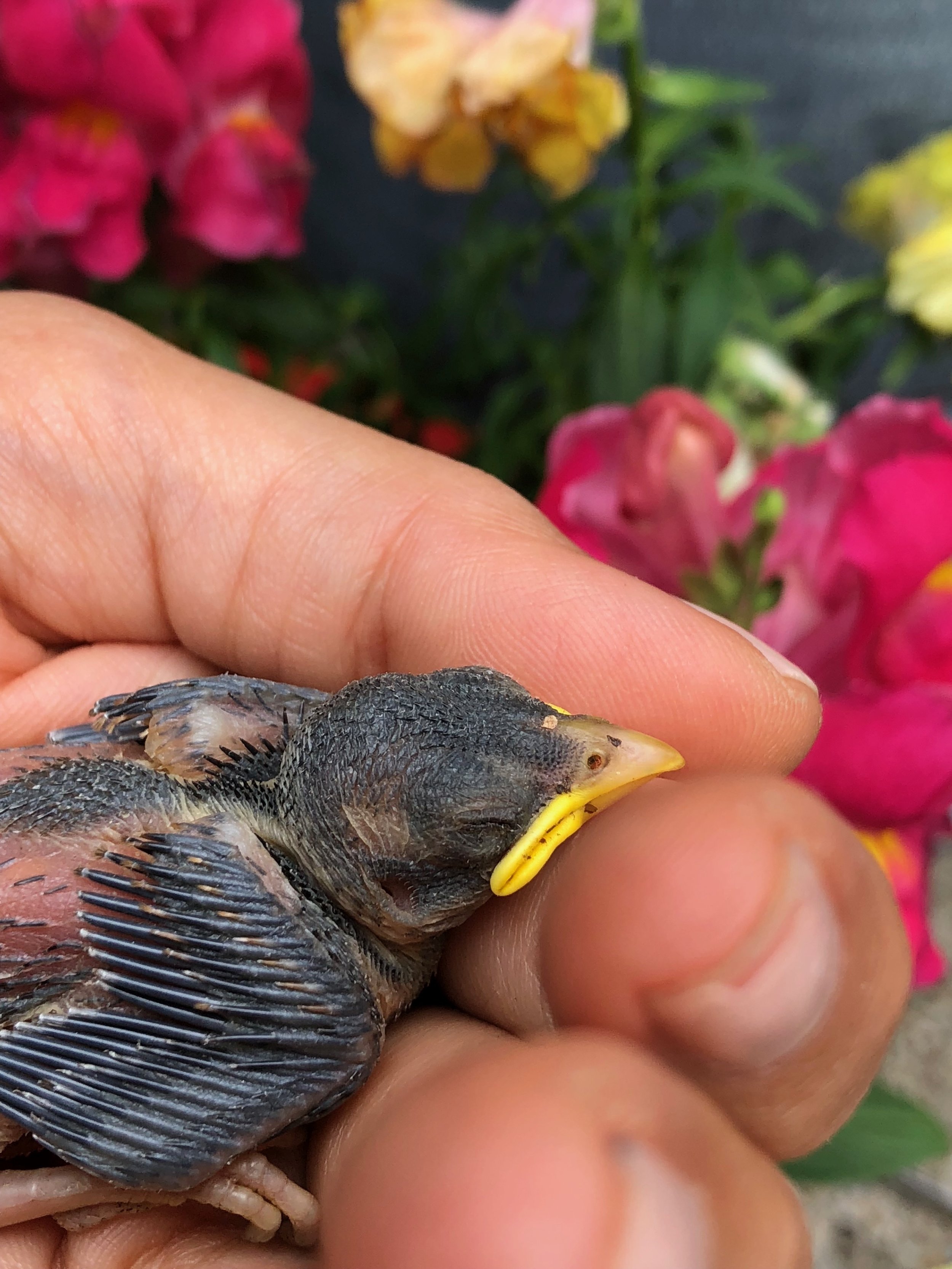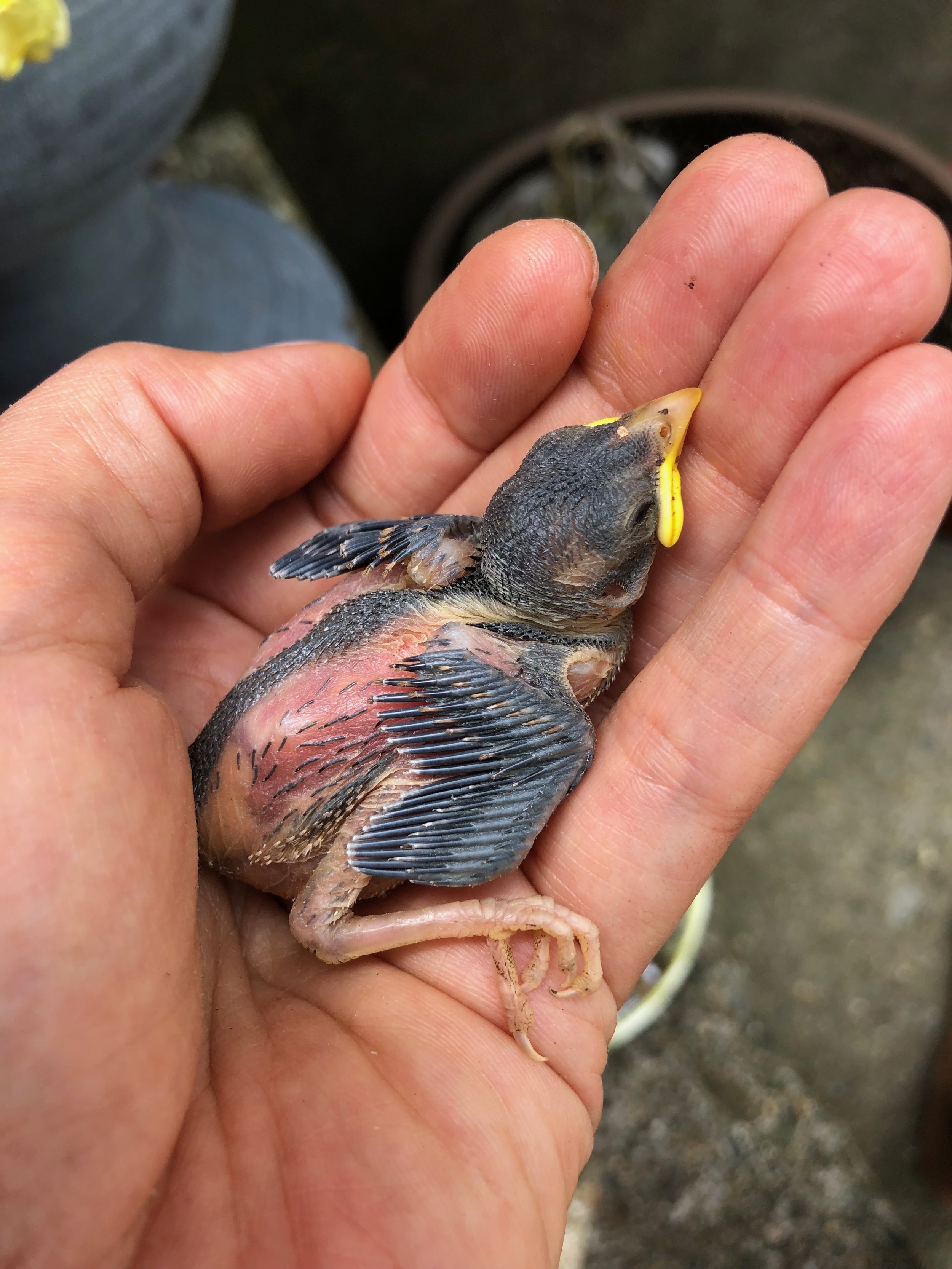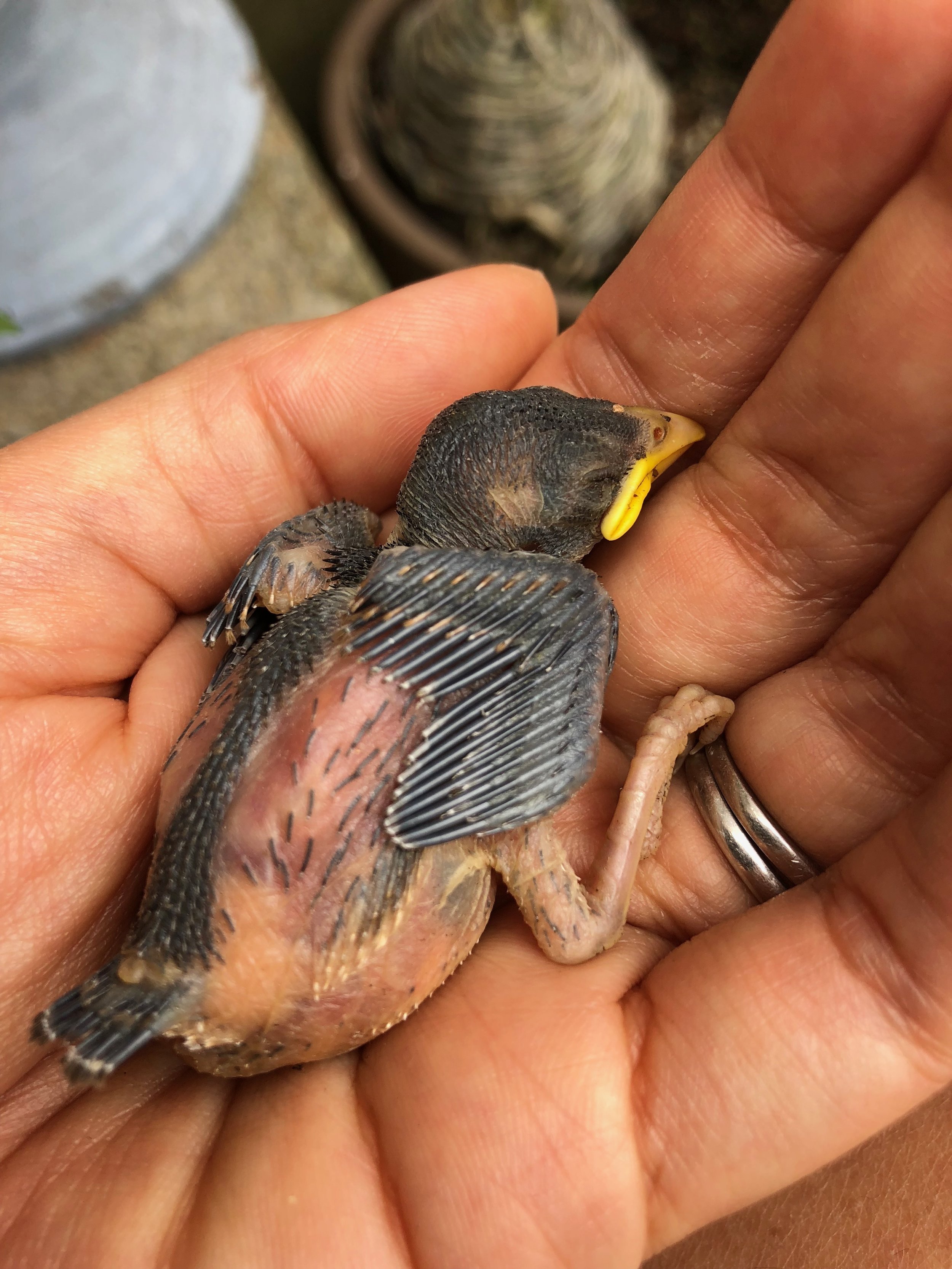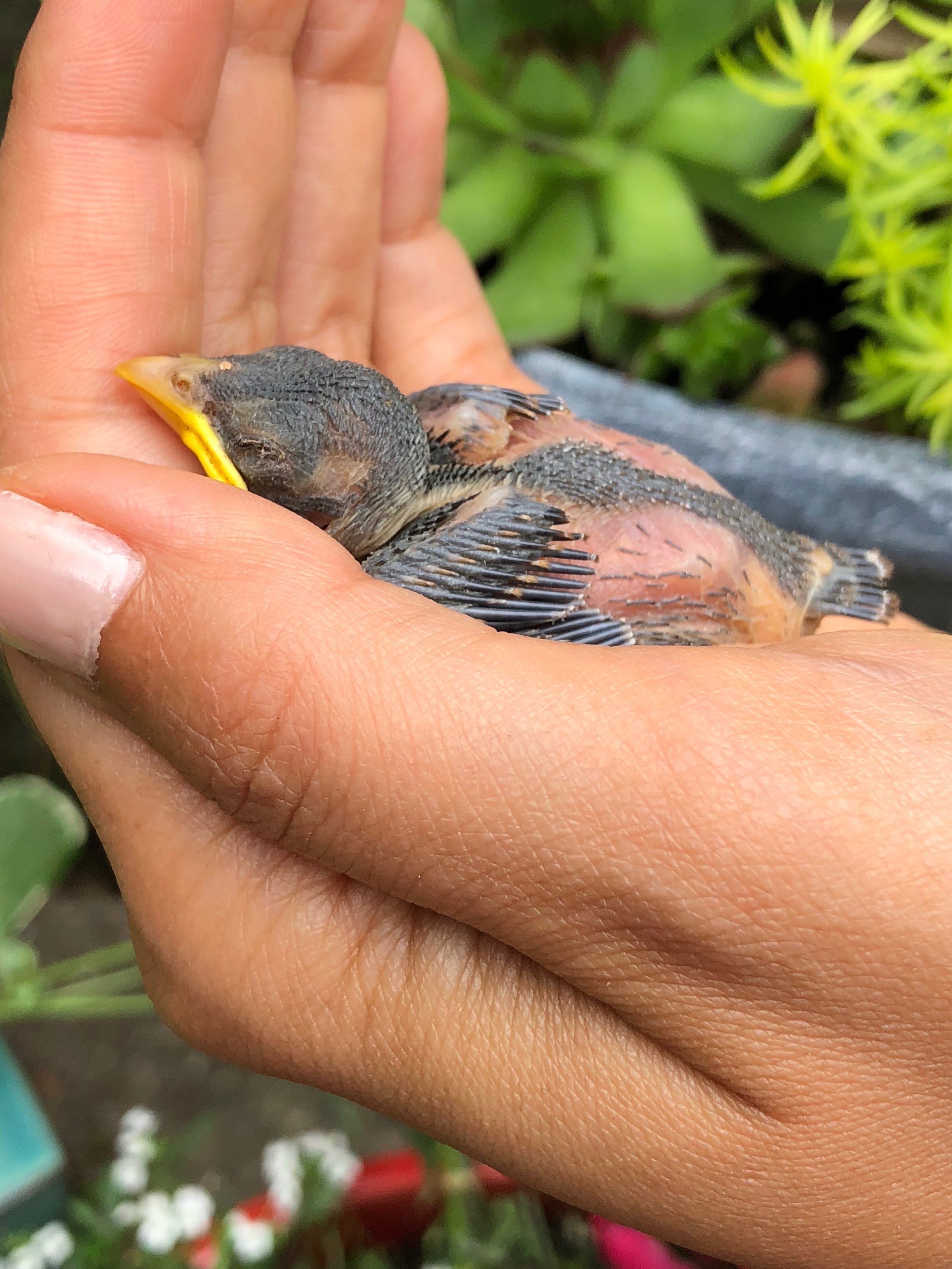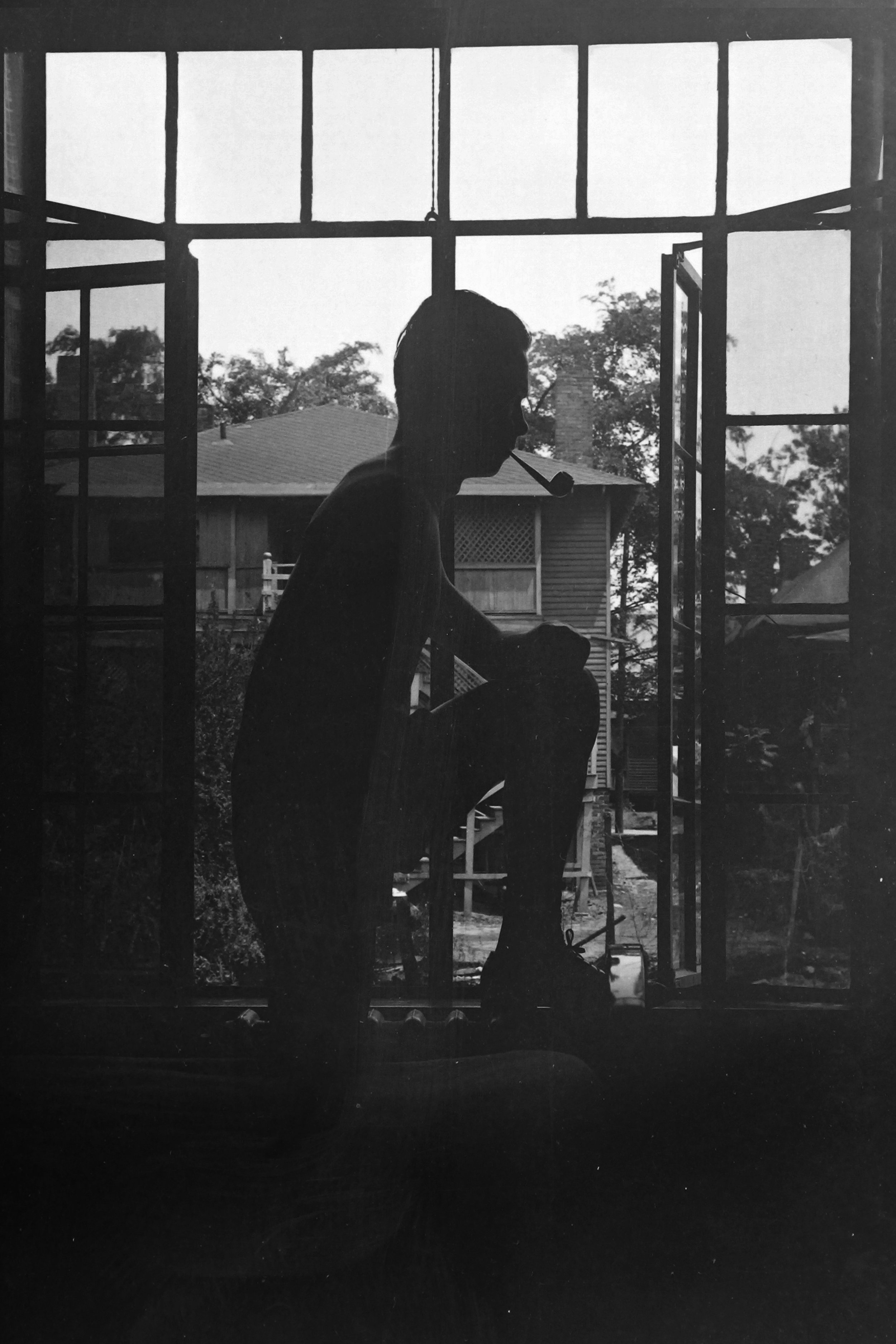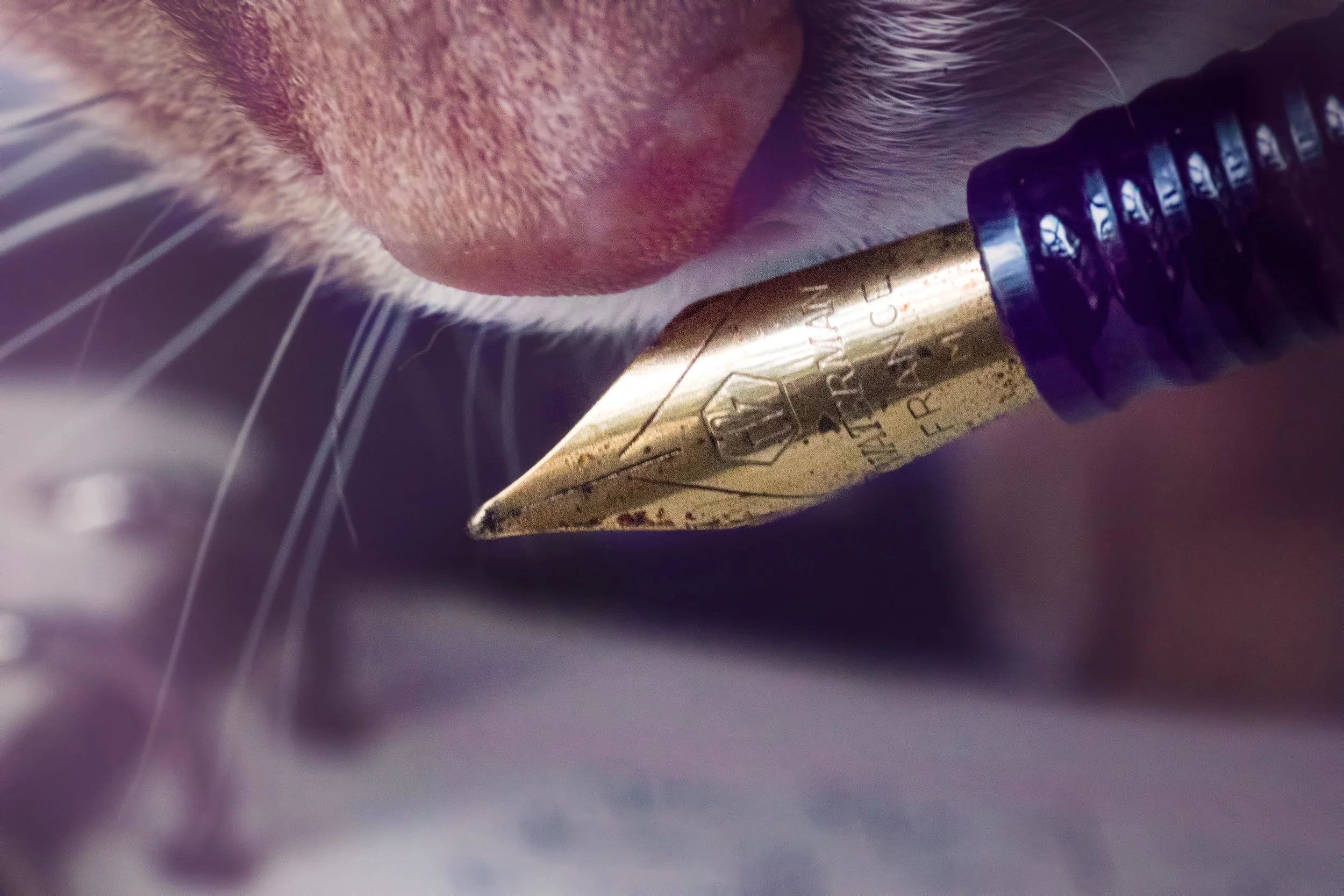The Earthkeeper
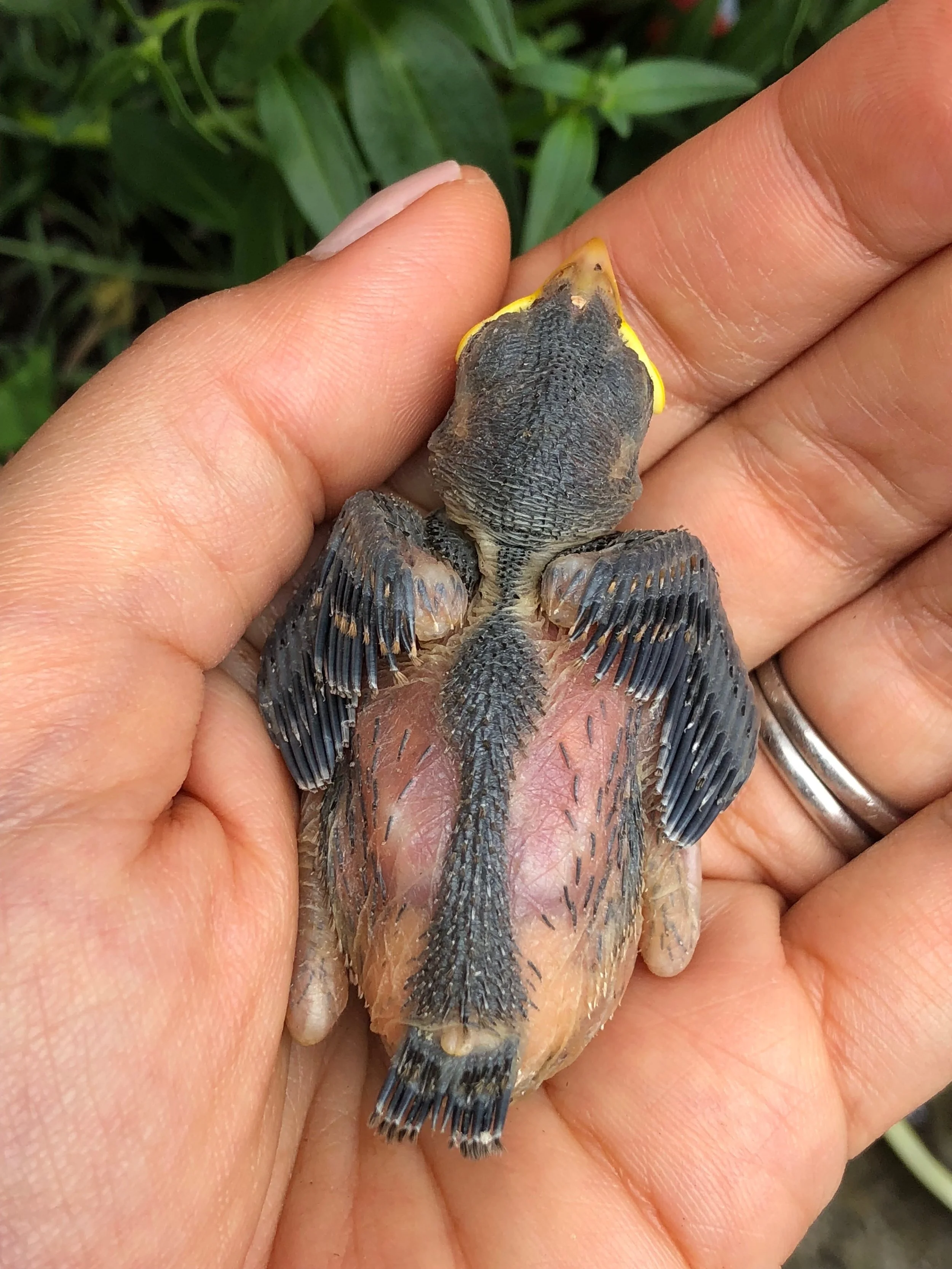
Since “the Great Gardening Rampage of 2015,” I’ve been much more keen about donning the mantle of stewardship for my small patch of Earth and all of its creatures. Tend the garden, feed the birds and (inevitably) the squirrels and chipmunks, too. Rescue the mice and spiders. Pull the weeds, but never ever use a chemical to do it. True story: last year I rid the patio of encroaching tendrils of poison ivy by pouring boiling water on them, making sure to get the roots as well. They politely shriveled up and disappeared, never to be seen again. This past spring, I dabbed peppermint essential oil in the crevices of my kitchen and for the first time in my life - despite a forecast of an “exploding pest season” for New England - saw hide nor hair of the legions of “noseeum” ants that normally swarm the house with relentless predictability every May.
I have been an attentive gardener this year as well, and have basked contentedly in the comments from appreciative passersby. It seems that our little corner on the way to downtown, choreographed to be blooming something or other with every passing month, has begun contributing to the neighbors’ sense that Portsmouth is a special little place to live, and that one should be on the lookout for delightful vignettes, which the eye may fall upon at any moment.
A Visitor
Friday nights are our family’s night to get the best farm-to-table Mexican food north of the border. No use of heavy sauces to mask the fact that the chef doesn’t know how to make something taste good, no. At Vida Cantina, the delicate, nuanced flavor of the food itself is the protagonist in your mouth, and you feel sated - not stuffed - at the end of what is likely to be the best meal of your life. We are loathe to miss a Friday and rarely do.
One night in June, upon returning from this weekly pilgrimage, we discovered a baby bird cheeping in the potted snapdragons by the stoop. We heard it first and then saw the leaves tremble and heave this way and that, alerting us to the fact that there was something alive in there other than flowers.
I suppressed the ripples of revulsion that instinctively ran up my spine and down my arms - trembling, heaving life that was as yet unseen tapped something in my lizard brain. It took all of my intellect to listen to the cheeps and tell myself that we had here was nothing more than a helpless baby bird.
A quick survey located the nest in a vent far up the side wall of the house - too high to reach, even with a ladder, and so after much dithering and pacing and finally sending the kids upstairs while we figured something out, I went about making the bird - a sparrow - comfortable in the pot with tufts of grass and clover. Then I got my hand spade and dug up grubs and worms from the garden.
Of course I had read that one is not supposed to do this - attempt to feed a baby bird - because you might feed them too much or the wrong thing, but his plaintive calls could not be left unattended. My mother’s heart would not stand for it. I did worry out loud to Brent, though, about the possibility that I was doing more harm than good, and wondered if I should just give up and hope he lived through the night until we could get him to an animal rescue in the morning. As I did so, however, we both looked up at the same time to see a red car driving by with a vanity plate that said, “DONTQT.”
I stopped digging, we looked at each other with wide eyes and humorously downturned mouths, and then shrugged in agreement. We knew what to do. I put the spade down and grabbed my phone to read up quickly on the process of feeding baby birds by hand, educating myself on some caveats along the way. One was to stop feeding while the food can still be seen bulging in the craw, which is the small pouch on the side of the bird’s throat. Once the bulge has gone, you know the bird has finished swallowing and you can continue.
I cut the worms into small sections, and used tweezers to pick up a piece at a time. Just coming into the bird’s peripheral vision caused him to launch his head and neck out in wobbly, frantic expectation, his calls taking on a hysterical note that made my uterus clench. As wide and gaping as his mouth was, though, it bobbed and weaved and trembled, making it a bit like trying to pin the tail on the donkey while galloping on horseback. I began to fear that I would not be able to feed him at all, despite my best intentions.
In time, much as with a human child, I got the rhythm of his movements and was able to match them to my own and he fed eagerly. I relied on instinct and observation to determine when enough was enough. With this little guy, it became pretty clear - he settled down from his panic, got full of worms, and then fell into a wee food coma, letting out occasional, contented little cheeps and exhalations even as he slept.
I decided grass and clover were not enough to keep the evening chill out and brought the whole pot in for the night instead. I dug up extra worms for a night-time snack and breakfast, and kept them in an empty grape tomato container, whose bottom I had lined with soil. Fledglings do NOT have to eat every half hour round the clock, I learned, as newly hatched babies do. That was a relief. In fact, birds of this age can usually sleep through the night and that’s just what this little one did.
In the morning, I found myself outside in the dark light of morning in flip flops and a nightgown, getting the next meal ready. As the day dawned sunny and warm, I brought the pot back outside and set it in the sun. I fed and played with the bird all morning. How feisty and strong he was. How curious! The contrast with the panic of the night before was stark, and knowing that it was because he felt himself well-rested and fed gave me a surge of joy. I also delighted in his frequent naps and clucked over how easy he slept.
When he was awake, however, I found he couldn’t be left alone, which is probably how he had gotten himself into this mess in the first place. He trampled all over the snapdragons, charging hither, thither and yon, exploring the edges and boundaries of his world. When he reached the rim of the pot he rested his chin there for a moment, looking out beyond his bubble in a reverie that was just hilarious to watch.
Then he lifted his head with a jerk and it was off in another direction, testing his limits.
At one point, having overestimated his abilities again, he charged right over the edge, the way a toddler bumbles into a street without any apparent awareness or instinct for self-preservation. He would have fallen to the sidewalk, wriggling helplessly there until he was picked off by some predator, or crushed underfoot by a distracted pedestrian. But I was watching him and I shot my hand out, catching him lightly on his way down.
The warm squirminess of him, the rubbery plumpness, was surprising and felt wonderful in my palm and I guess he liked it well enough too because he snuggled down almost immediately to take a quick nap there, pressing himself against the soft warmth of my fingers. “Such a little sweetheart,” I said under my breath. “Look at him go.”
The kids named him Lucky. And indeed, he was a lucky little fellow, wasn’t he? To have fallen from such heights into the soft bed of a flower pot below, and one, further, that happened to belong to a woman who had been recently thinking of herself as “the Earthkeeper” on her small plot of land?
State of Becoming
As with all good fortune, the real value of things often lies in their impermanence. I knew we couldn’t keep Lucky, and so we eventually did take him to the animal rescue in Cape Neddick, ME, where they put him in an incubator, and I guess where he was also eventually set free and in the wild in some days’ or weeks’ time.
It felt good to do this, from beginning to end - as an individual, and as a family, who pooled resources and ideas to make it happen and were able to bond over the outcome. So who was really the lucky one here? Him or us?
When I got home from the animal rescue, I looked up the animal symbolism of the sparrow and found that sparrows traditionally represent self-love and feelings of worthiness, as well as hard work and creativity. The back of my neck prickled as I thought about the agonies of self-doubt I had endured since Dad’s death, about whether I was able and worthy of the task of writing about him - how down I got on myself because I didn’t know exactly where I wanted to go, let alone how to get there. I began to reflect on seeing and treating my own self as the tender being I had held in my palm just hours before. Was this a message for me?
When I saw that baby bird, so feisty and strong, tramping boldly from one side of his pot to another, through the “underbrush” of obstacles, trying to find the boundaries of his world, before turning around and stomping to other side, it was not only hilarious but precious. It touched a deep part of me. Just look at him, trying so hard, starting to take risks. He can feel he’s got feathers coming in but he can’t fly yet. From my vantage, of course, I could see that he was full of that potential for flight that will yet be realized, and so I had not a worry in the world for him.
It occurred to me that this description and these feelings might as easily be applied to myself. Look at me, I thought, so curious and insistent, full of Sturm und Drang, feeling called to soar. It wasn’t that I am constitutionally unable to fly. I just didn’t have my wings yet. Feeling my feathers come in was making me impatient and demanding.
Deeper Truths
I have never been one to dream. Or rather, let’s say that I understand the universality and biological necessity of dreaming, but I have never been one to remember my dreams, or to have ones that made sense in the light of day. Normally they have always been full of illusion and fantasy, sometimes (okay, often) horror. Since Mom and Dad died, however, I have not only been remembering dreams on a regular basis, but they have been coming to me as completely cogent life wisdoms that I don’t feel I could ever have come upon on my own. Not only are the stories and images deeply metaphorical, sometimes my dreams come as literally just words or phrases for me to “learn and remember.”
One morning not long after the encounter with Lucky, I woke up to such a phrase lingering behind my eyes, hovering in the air like letters at a surprise birthday party, but lit from within. It said, “It’s okay to be in a state of becoming.”
I have taken heart and gained a softer, more loving view of myself since we found and saved Lucky and I made the connection between his state of becoming and my own.
I don’t know why, but I’ve got this number stuck in my head: that somehow it’s going to “take 7 years” (that is, five more) to write this book. That sounds like a long time, but if that’s what it takes to realize a life-long dream, then it will have been worth it, don’t you think?
Finding and so closely observing Lucky has made the whole process more palatable.
Here I am, tramping through snapdragons and exploring my flower pot. That’s what Chan’s Peking Kitchen is all about, I suppose. This is me - resting my chin on the edge and looking out into the world wondering what’s in store and wanting to get there. And when my feathers are in, I’ll not even necessarily know it. I will simply jump from the pot’s rim and find that I have taken flight. To where remains to be seen, and I can hardly wait!
Like, Comment, Share!
Although the buttons below work, Squarespace is currently struggling with a bug that erases the tracking at random. Please don’t let low or no numbers shown deter you. Likes and shares still help boost my visibility, even if the numbers don’t stick around to show it. Thank you!
